Legislative Study Committee Recommends Sandhill Crane Hunting Season in Wisconsin

Wisconsinite Paul Wait of Delta Waterfowl served on 12-member panel to examine management options and craft legislation to establish a hunt
BISMARCK, NORTH DAKOTA — A Wisconsin Legislative Council Study Committee on Sandhill Cranes has drafted and endorsed a bill that would establish a hunting season in the Badger State.
 At the conclusion of five monthly meetings that began in August, the 12-member Study Committee voted on Dec. 10 to forward a draft bill on to Wisconsin’s Legislative Council for review and introduction into the state Senate and Assembly. The Study Committee, chaired by State Rep. Paul Tittl of Manitowoc (R-Manitowoc), with State Sen. Romaine Quinn (R-Cameron) serving as vice chair, heard presentations from migratory bird management professionals from the U.S. Fish and Wildlife Service and the Wisconsin Department of Natural Resources, as well as from farmers, conservation organizations, and birders.
At the conclusion of five monthly meetings that began in August, the 12-member Study Committee voted on Dec. 10 to forward a draft bill on to Wisconsin’s Legislative Council for review and introduction into the state Senate and Assembly. The Study Committee, chaired by State Rep. Paul Tittl of Manitowoc (R-Manitowoc), with State Sen. Romaine Quinn (R-Cameron) serving as vice chair, heard presentations from migratory bird management professionals from the U.S. Fish and Wildlife Service and the Wisconsin Department of Natural Resources, as well as from farmers, conservation organizations, and birders.
Paul Wait, a Wisconsin native and resident who works Delta Waterfowl as a senior manager of communications, served as one of eight citizen members on the Study Committee.
“I was proud to represent Delta Waterfowl and migratory bird interests in Wisconsin,” Wait said. “The eastern population of Sandhill cranes is such a wonderful conservation success story, growing at more than 4% per year and now numbering more than 110,000 birds. As we were directed, the Study Committee considered the science, the agricultural damage caused sandhill cranes, and potential hunting opportunity. The bill we ultimately recommended would establish a hunting season, help to manage the crane population, and provide crop damage relief to farmers.”
The Study Committee heard in presentations that sandhill cranes caused an estimated $1.975 million in damage in 2023, including $934,900 to corn crops and $870,500 to potatoes, with the remainder to winter wheat, cranberries, strawberries, and other crops. A total of 1,405 sandhill cranes were killed under U.S. Department of Agriculture crop damage permits. Cranes killed under damage permits are not allowed by law to be utilized for meat or feathers but must be discarded or left in the field.
The eastern population breeds primarily in Wisconsin, Michigan, southern Ontario, and Quebec. The eastern population cranes winter primarily in Florida. Under the USFWS management plan, the eastern population can sustain hunting when the birds number 30,000 or more. The population reached the threshold nearly 20 years ago and grew to an estimated 110,646 in 2023.
Sandhill cranes are currently hunted in three Canadian provinces and 17 states, including three states on the migration route of eastern sandhills. Kentucky, Tennessee, and Alabama all offer sandhill crane hunting through permit draw systems. During the 2023-2024 season, hunters in those three states harvested a combined 868 sandhill cranes.
According to the USFWS, Wisconsin can offer a similar crane hunting season.
“At Delta Waterfowl, we pride ourselves on using the best available science when it comes to waterfowl management. And in this case, the science is clear,” said Cyrus Baird, senior director of government affairs. “Over the last several years, Delta and our partners have had thoughtful, deliberate conversations with stakeholders from across the state about Sandhill cranes. Working through the Legislative Council Study Committee created a public forum by where every voice was heard on this topic. The resulting legislation that will come out of the committee and go before the legislature is a result of months of hard work. We look forward to talking with our members, duck hunters and lawmakers alike about it in 2025.”
The proposed bill approved by the Study Committee moves to the Wisconsin Legislative Council, which will decide whether to formally introduce it into the Wisconsin Senate and Assembly in 2025.
“Not only are sportsmen and women in Wisconsin one step closer to enacting a sustainable, regulate season for Sandhill cranes, the conservation community at large is one step closer to continuing to use the best available science to dictate how we manage wildlife while providing the Wisconsin Department of Natural Resources with another tool in their toolbox to address an ever-growing population of cranes in the state,” Baird said.
Delta Waterfowl is The Duck Hunters Organization, a leading conservation group working to produce ducks and secure the future of waterfowl hunting in North America. Visit deltawaterfowl.org.
For more information, contact Cyrus Baird at cbaird@deltawaterfowl.org.

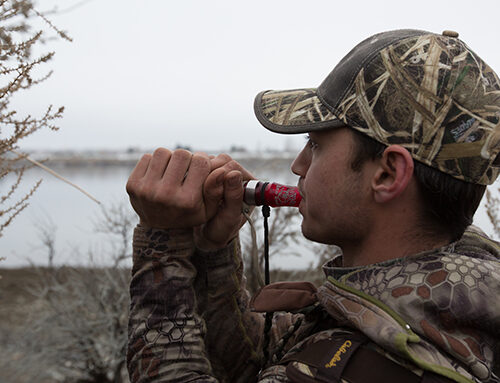
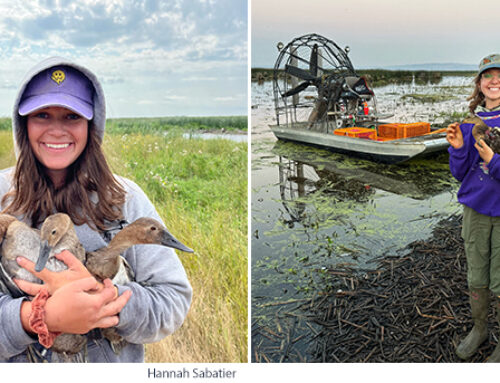
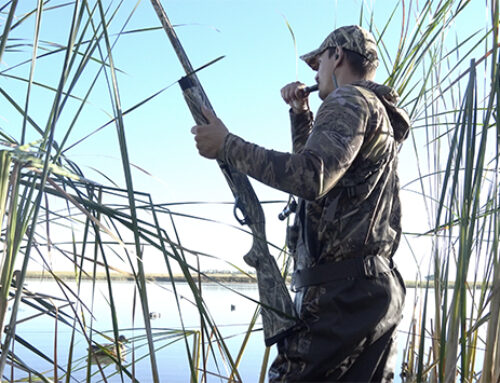
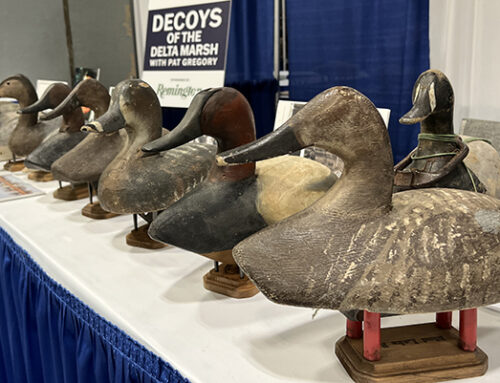
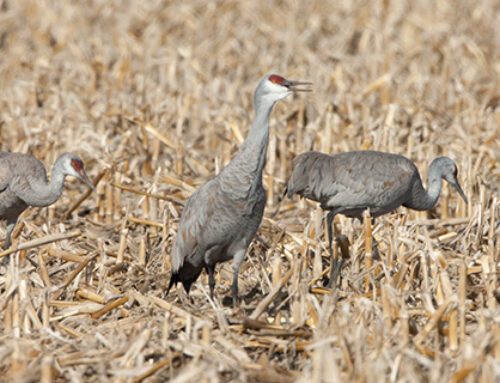
Leave A Comment